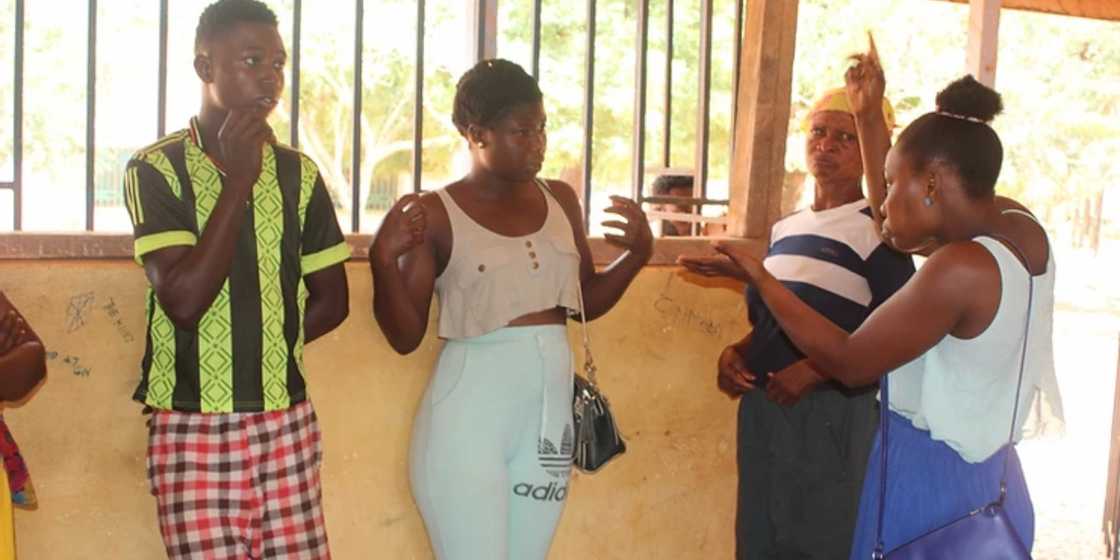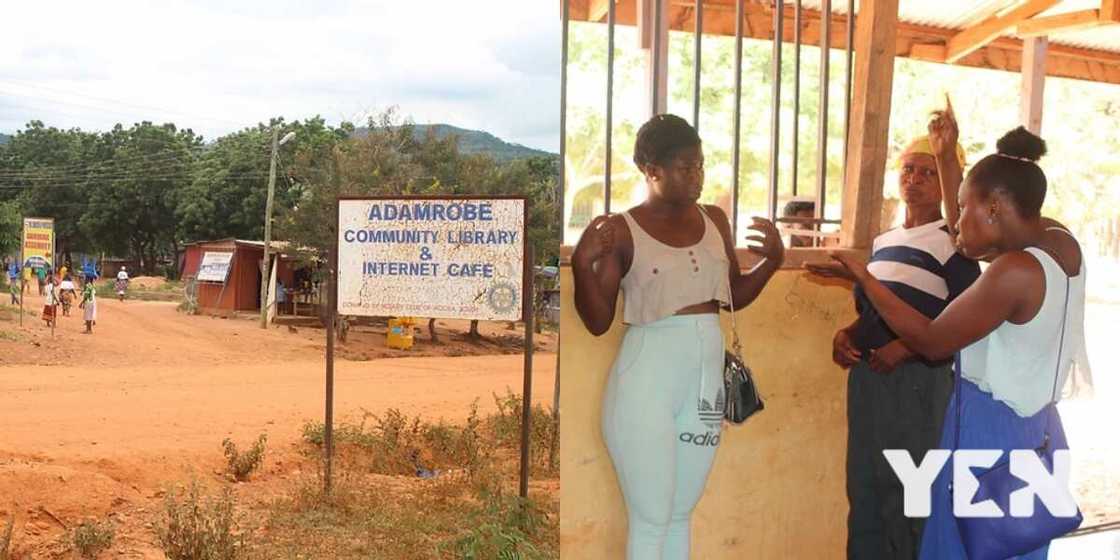Story of Adamrobe the village around Aburi where people speak with their hands
- A Ghanaian community named Adamrobe located at the foot of the Akuapem hills in the Eastern Region has the highest number of deaf people in Ghana
- What makes Adamrobe different is that, throughout the village, people speak with their hands
- Little is known by way of direct evidence about the incident of deafness in the village
Our Manifesto: This is what YEN.com.gh believes in
In Ghana at community called Adamrobe located in a bowl shape valley at the foot of the Akuapem hills, deaf and dumbness is so common that it could be described as the town with the largest deaf population.
What makes Adamrobe different is that, throughout the village, people speak with their hands.
Gabriel Ahiabor reported that over centuries, a local sign language emerged which was used between deaf and hearing people in their everyday life, rendering the town a very unique place of inclusion of deaf people.

Source: Original
Little is known by way of direct evidence about the incident of deafness in the village.
But there is a lot of circumstantial evidence pointing to both local and medical perspective on the high incidence of the deafness.

Source: UGC
READ ALSO: Nana Ama McBrown and Baby Maxin twin again as they wear same sneakers (photo)
The most up to date records clearly identifies that out of the 1800 people in the community, 50 are deaf which doubles the global average by World Health Organisation which estimate five out of every 1000 children worldwide are either born with hearing loss or acquire it soon after birth.
In Adamrobe the birth of a child leads to fear and anxiety not only for the parents but for the entire village.
Several researches initiated by private bodies and as well as government institutions revealed the high incidence of deafness. One of the researches suggested that the high number was genetic.

Source: Original
Some of the villagers believe that the high rate of deafness in Adamrobe could be as a result of being cursed, since the adjoining villages have not reported any similar disorders.
Meanwhile, the Gyasehene of the village, Nana Kwame Ayeh believed an age-old custom of marrying within the community, coupled with lack of access to medical facilities and immunisation in the past, probably led to the large number of the deaf and mute.
According to him, in 1975 the former chief of the village Nana Kwakwa Asiampong II passed a law prohibiting marriage between two deaf persons to reduce the number of deaf population in the village.
READ ALSO: Joe Mettle drops boo'ed up photo with his wife following rumors that she has 2 kids
Though deaf women seem to have no problem in finding partners for marriage, it is generally believed that marrying a deaf man will result in deaf offspring. As a result, most deaf men have no children.
According to a sociological research conducted by Amedofu, Brobby & Ocansey (1999), some explanations inhabitants offered for the large deaf population was that, the town is ruled over spiritually by a deaf god who makes the offspring of any couple deaf if they have done something to offend him.
A second myth was that, there is a stream on the outskirts of the town whose water must not be fetched by anyone for domestic purposes because of its sacred nature and that anyone who dared to break these taboos are punished with deaf children.
Another story was that long ago, there was a handsome strong deaf young man in the town with whom every woman and girl, irrespective of whether they were married or not, sought to have a child because of his charming looks. This irresistible deaf man, is believed, to have sowed the seed of deafness in town.
These traditional stories were re-enforced by the village Secretary Mr Stephen Akrofi who said some of the children could talk by 3 years and suddenly suffer convulsion and become mute.
READ ALSO: Mafi-Dove, the village in Ghana where childbirth and burial are banned
In other news, Mafi-Dove Community a small neighbourhood located in the Central Tongu District of the Volta Region does not allow childbirth, the burial of the dead or the rearing of animals.
Childbirth, burial and rearing of animals are considered a taboo in the neighbourhood and thought to be acts that would offend the gods.
BBC had an interview with the locals in which it was revealed that pregnant women have to be rushed out when about entering labour because of the age-old tradition.
READ ALSO: Chadwick Boseman, ‘Black Panther’ Star, Dies at 43
Star Gist: Edem shares the inspiration behind his new EP; Moodswings | #Yencomgh
Share your stories and news by getting interactive on our Facebook page!
Source: YEN.com.gh

